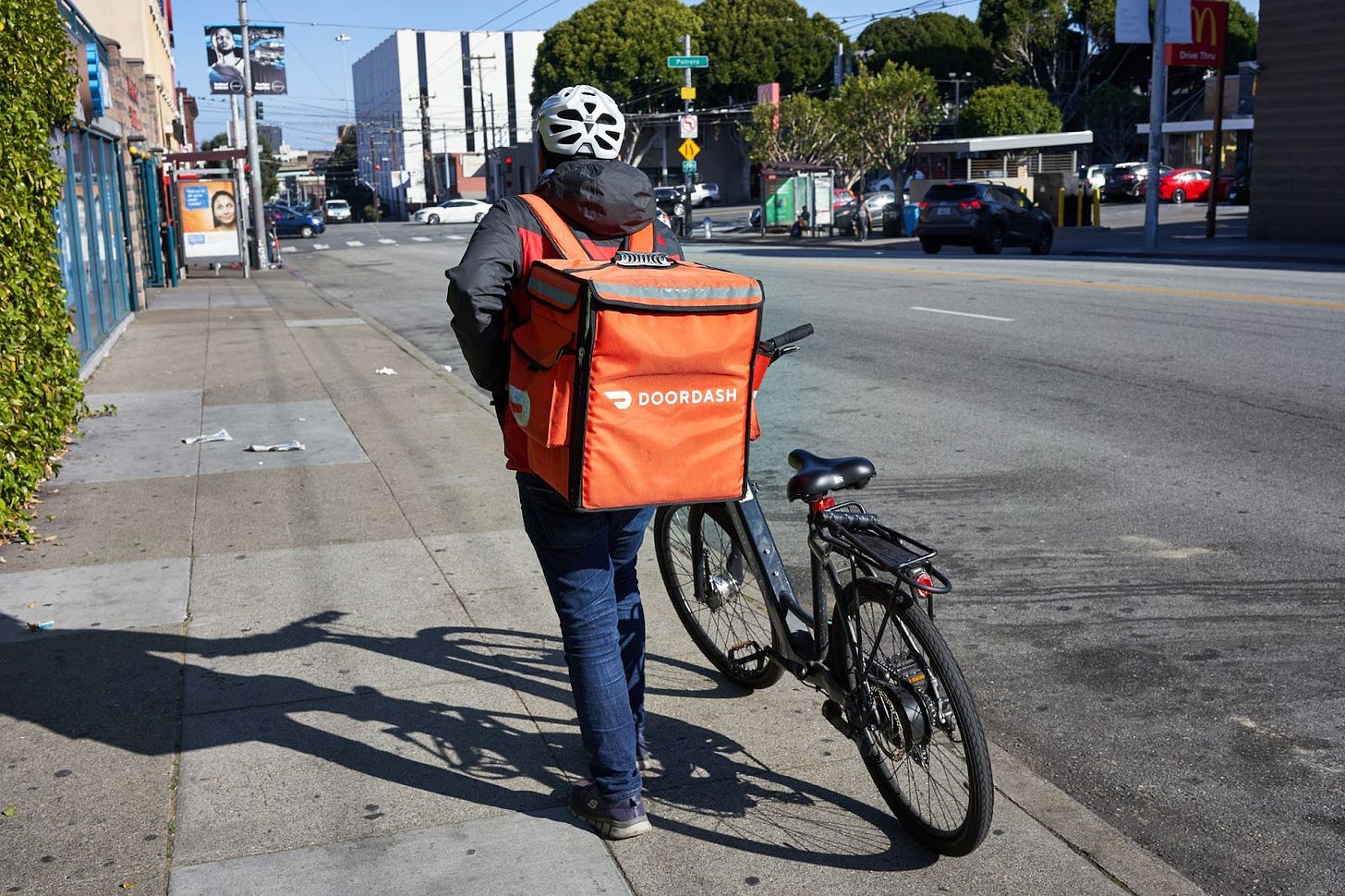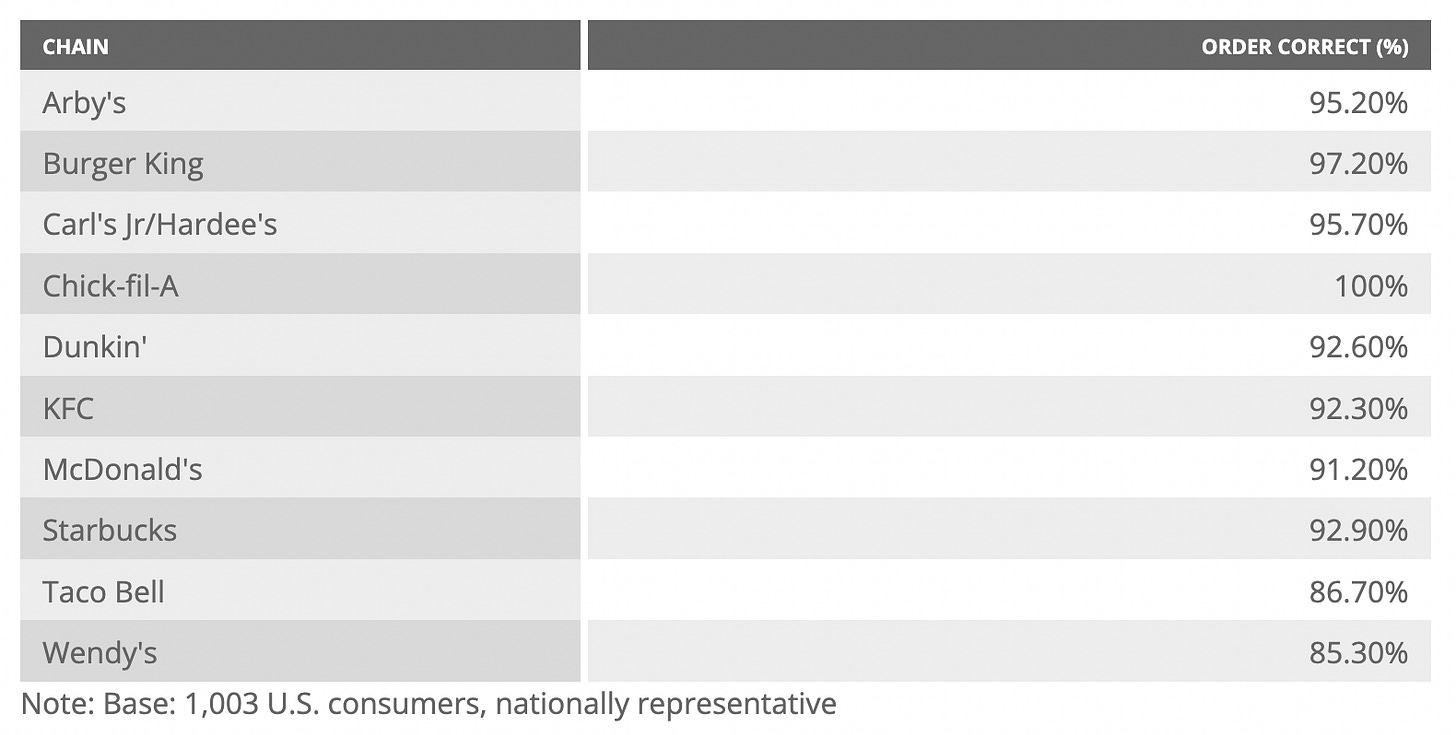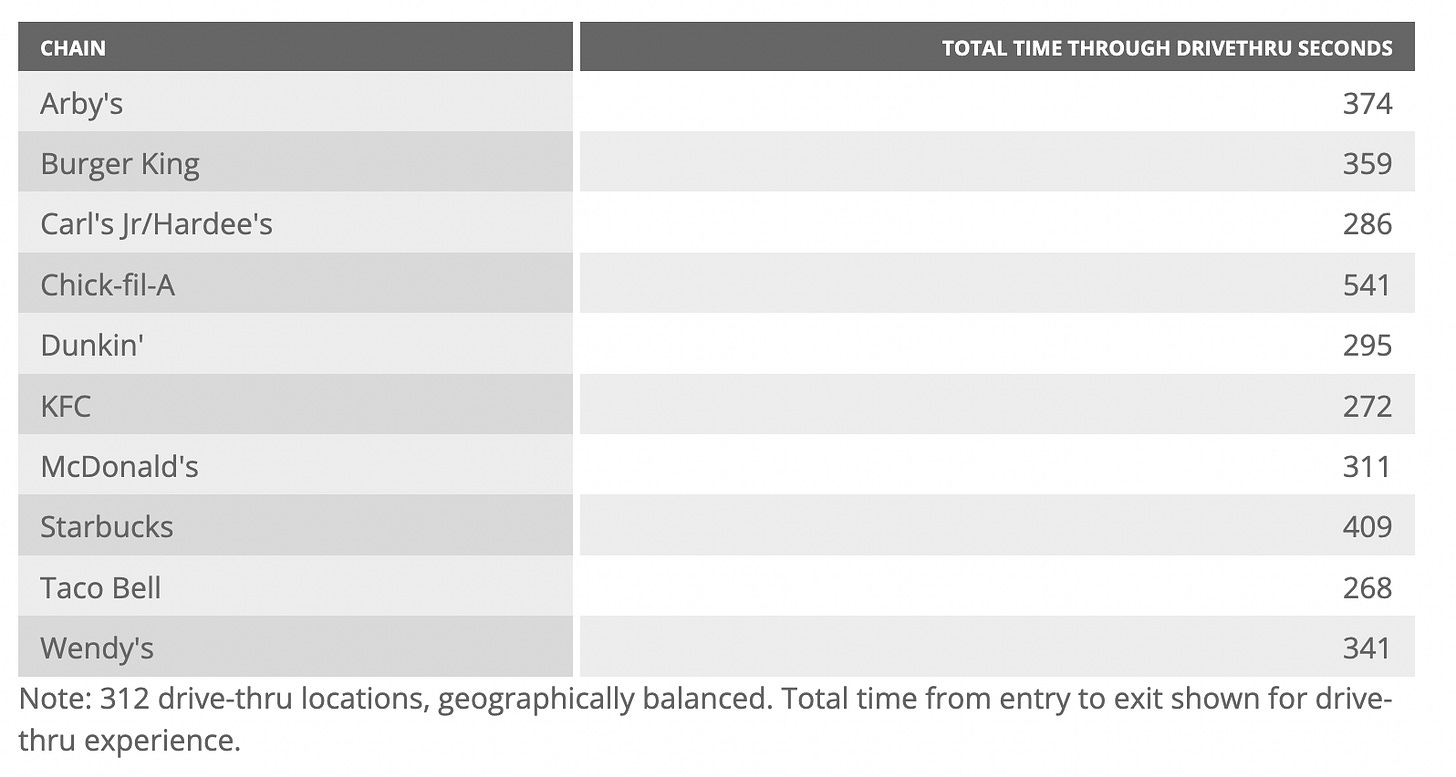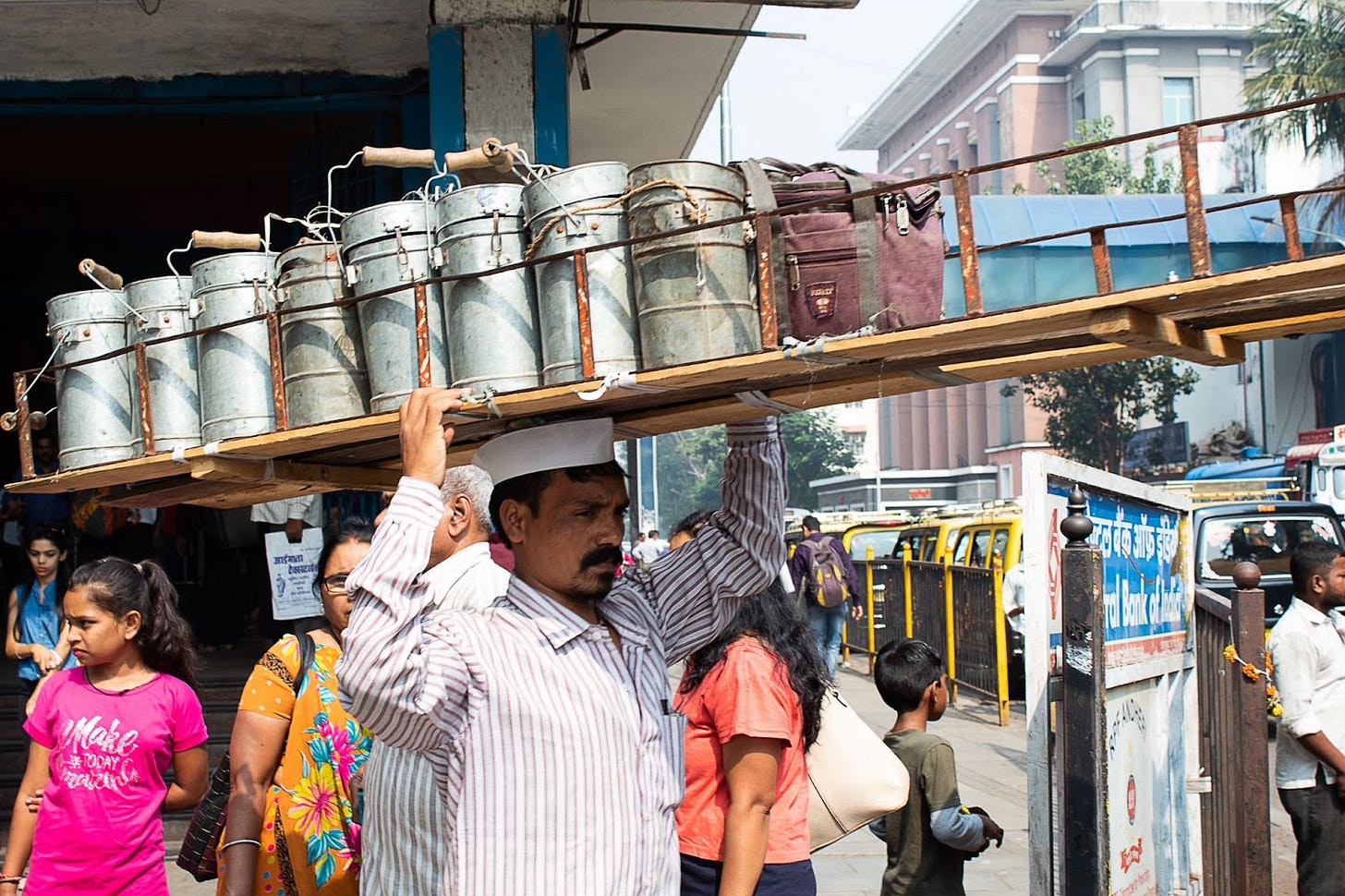The WSJ had an interesting article last week revealing what changes in the new contract between DoorDash and McDonald’s.
The first change concerns the base commission, lowering what McDonald’s will be paying, from 15.5% to 11.6% for orders from nonsubscribers, and 14.1% for orders from DashPass members.
But the main change is actually adding penalties on waiting time:
“When a driver has to wait more than four minutes, the rates start to climb, reaching 17.6% on orders from non-DashPass subscribers that take more than seven minutes, the documents show. The rate on DashPass-subscriber orders that make drivers wait more than seven minutes gradually rises to 20.1%. DoorDash can see couriers on the job via and starts the clock when they are 25 meters, or roughly 80 feet, away from the restaurant.”
And penalties on mistakes:
“DoorDash also negotiated for each McDonald’s store to cover the cost of refunds caused by restaurant mistakes, one of the documents shows, such as when the kitchen packs the wrong burger or forgets the French fries—after guest complaints reach a certain threshold.”
I find both these changes quite interesting.
The wait-time aspect is easy to understand.
DoorDash customers care about time—that’s why they order from DoorDash.
Mcdonald’s customers care about speed—that’s why they order FAST food.
So the combination of the two makes time even more important. My research from many years ago, shows that an improvement of around 7 seconds in waiting time, amounts to a 1% improvement in market share, especially for fast food (with variations across firms). I wouldn’t make the same extrapolation for DoorDash orders since sitting at the comfort of your home or office doesn’t compare to wasting your time in a line. But it’s pretty clear that timeliness is key.
So penalizing the store for having the driver wait makes absolute sense as a way of aligning incentives, and I love the way they do it as a % increase in take-rate per minute waiting.
The Impact of Mistakes
But the part I find even more interesting in the new contract is the mistake-based penalties.
My experience with DoorDash is quite variable, but all food delivery platforms are quite terrible in this aspect.
In fact, out of academic curiosity, I ran a personal log and found that 50% of the orders I placed in SF (where I teach often and thus order more online) had some problem: from missing utensils (even though I asked for them), to sending the wrong order, or not delivering the order at all.
Once, I even tweeted about it:
The solution DoorDash and the like usually resort to, is to issue a refund. While it’s a very nice gesture, it unfortunately does nothing for my hunger or the fact that I have to reorder, renegotiate the refund, and then wait for the new order (which I have already wasted time waiting for). Even worse, I don’t always have the flexibility to wait for another 45 minutes to have my meal. More often than not, I end up skipping the meal entirely.
As part of the research I mentioned earlier, we also performed a separate study using data from a survey conducted by QSR magazine (and which is updated every year) on the impact of order accuracy and speed. We found that order accuracy has a significant impact on customer demand and utility.
The first observation was the significant variation in order accuracy. For example, the updated statistics from the 2021 study are:
And the respective waiting times:
Comparing the data, we notice that McDonald's performs well overall (92% accuracy with 311 seconds of total service), while other chains perform well only on one dimension (Chick-fil-A on accuracy, Taco Bell on speed).
Note that these statistics are taken on total service time and order accuracy specifically for drive-thru orders. In terms of accuracy, however, I have no reason to believe that they are much different from ordering on DoorDash.
Back to our research: Why is accuracy so important?
Order accuracy has a nonlinear effect on satisfaction (or utility). Having to wait for an order I have already waited for is bad enough. But having to wait for 30 minutes (at best) to receive an order that may be wrong or incomplete makes the entire experience just worse. The idea of ordering online is to save time, so when there are mistakes in my order and I need to spend additional time to correct them, it defies the purpose.
We hate waiting, but we hate uncertain waits even more.
Any Solutions?
So now that we established the importance of order accuracy, let’s look at what can help ensure it.
Other than the option to leave a review (where customers can vent), there are not many more solutions available to improve order accuracy. However, the reviews on these platforms are not all that helpful when it comes to quality of service, primarily because they conflate food quality and service.
Sometimes order accuracy is more subtle, so it’s hard to read through the reviews and establish what the problem really was. One solution would be to offer customers the option to review separate aspects, making reviews a little more accurate, and then make this information visible to other customers.
Furthermore, there are not that many people who actually leave reviews, and at times, the issue is not even the restaurant but the actual delivery person. And since you can’t choose your Dasher, you have limited control on the quality of the service.
In addition, I am sure DoorDash knows that certain restaurants and certain delivery people are more prone to making mistakes, but in a world where these platforms compete on variety (i.e., the number of restaurants) and speed (based on the number of delivery people), and there is a shortage in both, kicking people off should not be used lightly.
Since most people do not leave reviews, we are in an equilibrium where the current solution is just inadequate to improve the problem.
And this is where the notion of penalizing the restaurants for time and mistakes comes in.
But I would argue that this is not new. It actually dates back to the late 1800s; before the existence of any tech platform.
The Dabbawala Delivery System
The notion of food delivery is not new. In fact, in Mumbai, one of the busiest cities in the world, public transportation is so crowded during rush hour that you cannot carry your own lunch. So they came up with the following solution: the Dabbawala. Inspired by the word dabba, the name of the food container or lunch box, a dabbawala (the one who carries the box), picks up the container from your home (after you have left), delivers it to your office, and also returns it when you are done.
There are about 5,000 dabbawalas in Mumbai, delivering 200,000 meals a day. Each dabbawala delivers about 35-40 dabbas daily, at a price range of 800-1,000 rupees ($12-15) a month. What’s surprising is the fact that dabbawalas have an error rate of less than 1:6million deliveries!
Even more astonishing is the fact that there is absolutely no tech involved in the process!
The dabbawalas start their journey by collecting lunch boxes from each house on bicycles or on foot. The maximum waiting time to collect a box is 2 minutes. Every dabbawalla has to reach the collection center by 9.30 am, and from there, the nearest railway station where aggregation and sorting are carried out.
The boxes are then transported to their destination railway station by local trains, and then carried from each destination station to destination zones by bicycles or carts. By lunchtime, the lunch boxes are delivered to their final recipients, at their office or workplace. Throughout the entire process, the “dabbas” exchange hands a total of six times.
HBS wrote a whole case about the dabbawala system, discussing the importance of apprenticeship, flat organization, and communal sense of purpose. I will not get deeper into these, but what I found the most interesting and relevant to this article is the amazing accuracy and timeliness in an otherwise chaotic environment.
One of the most important principles they follow: “Abandon bad customers: One customer should not cause thousands to suffer.”
If a Mumbai household delays the dabba for more than a week, that customer is no longer served.
And while I am not suggesting that DoorDash drops poorly performing restaurants as fast, (even though Uber does it for poorly performing drivers), aligning incentives on timeliness and accuracy are definitely a great starting point.
The new contract between DoorDash and McDonlad’s will be in effect in 2023, so if you see me ordering a Big Mac on DoorDash before or after 2023, know that this is purely in the name of diff-in-diff research.








By introducing penalties perhaps we can finally have an objective index DoorDash can consider exposing to users. Personally I would be more interested in the likelihood of the restaurant receiving penalties than in the user reviews
The Dabba delivery service is fascinating! the things we can learn from others around the world...